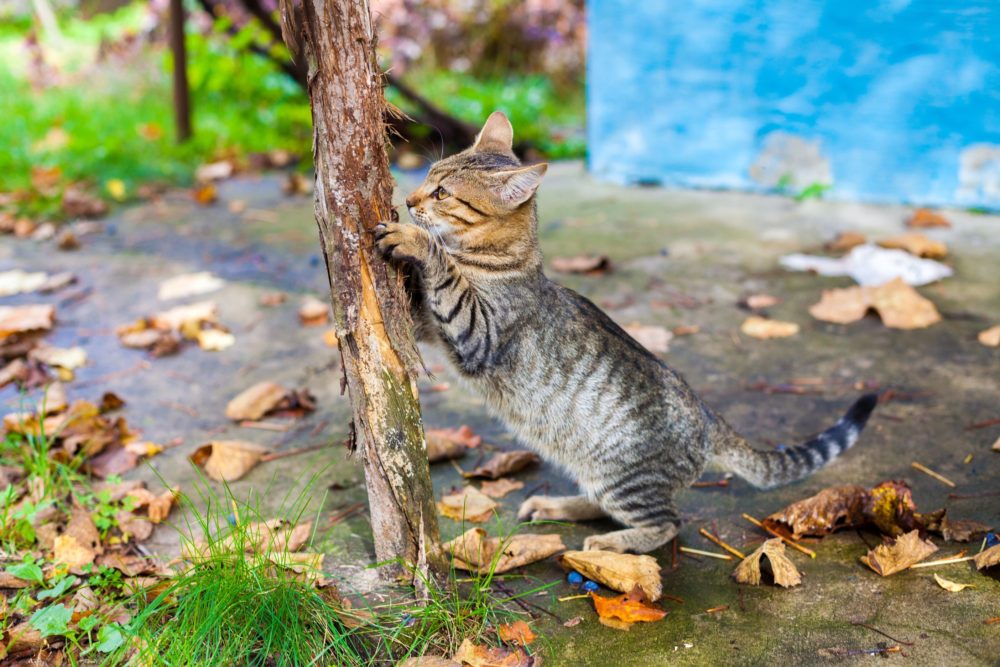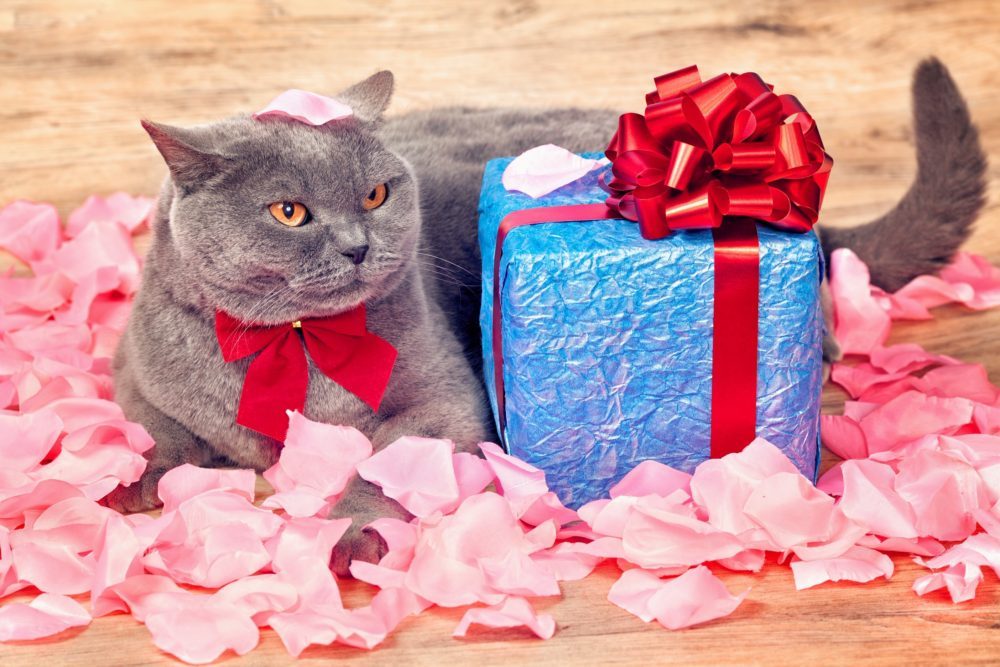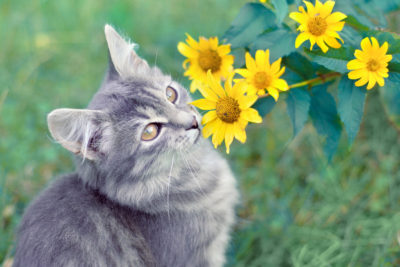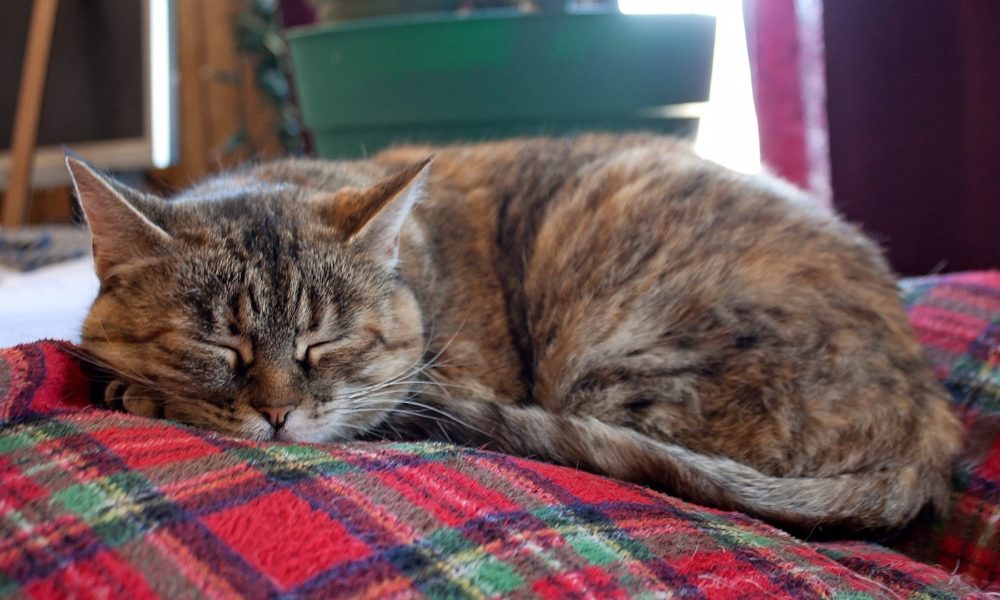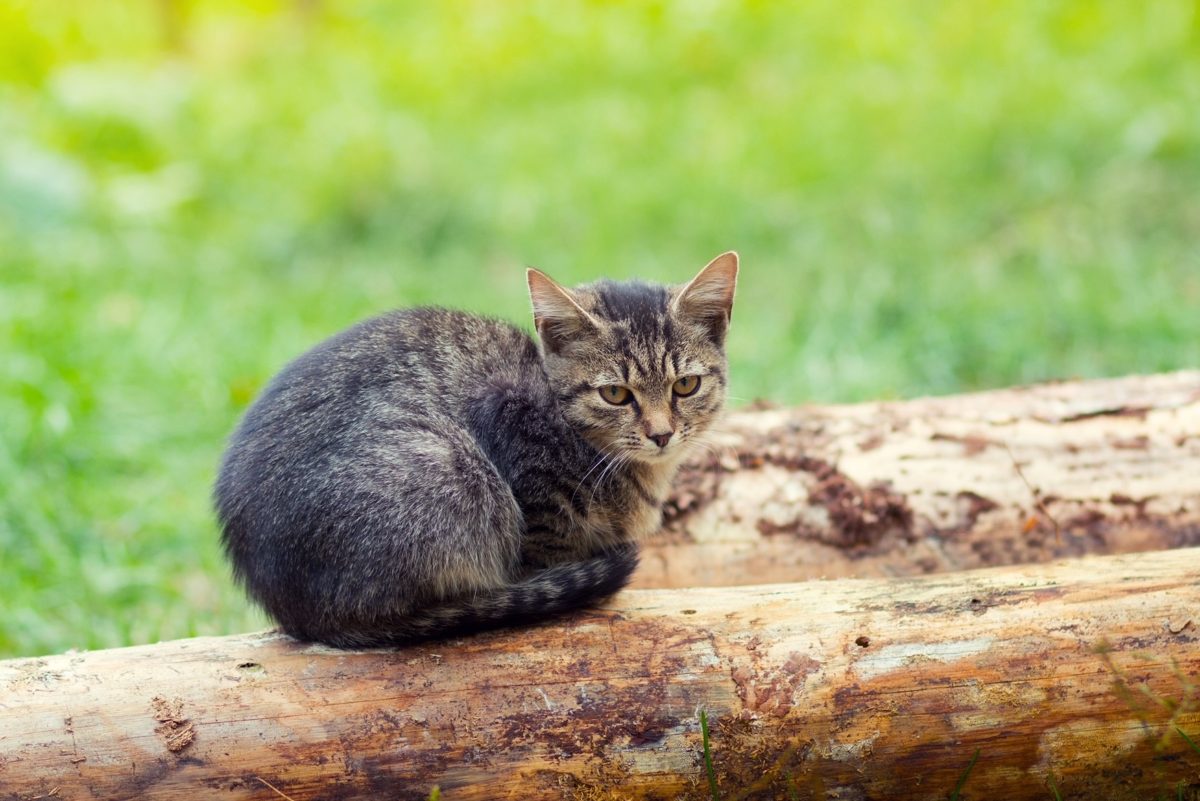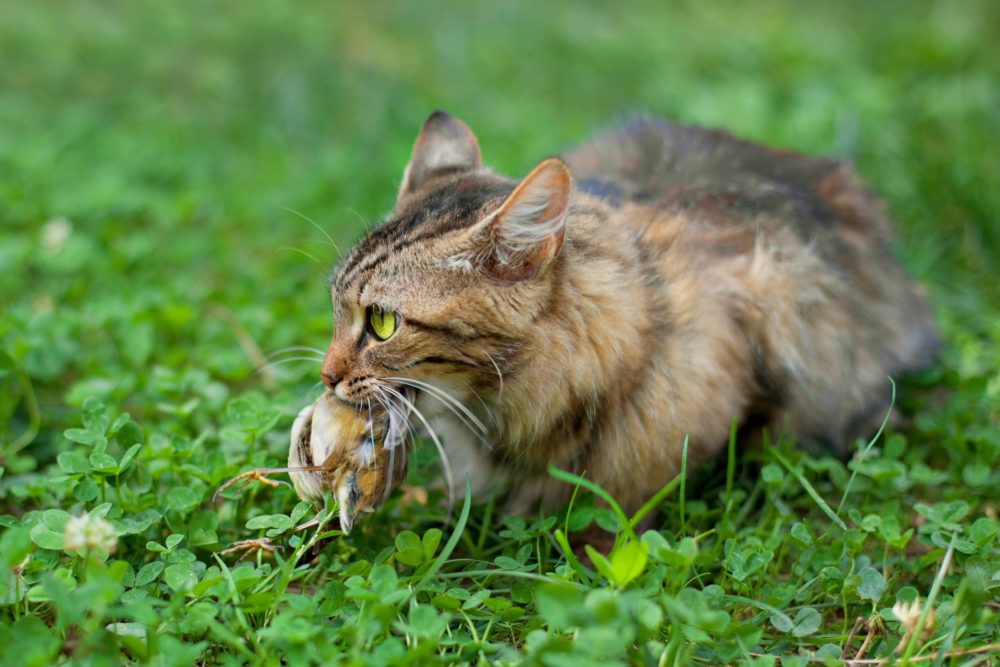
What to do when your cat brings home a dead mouse or bird?
In our household we have two very different cats! Misty, the eldest, is a cat who has outside access during the day and is kept in overnight. Bella-Boo is an indoor cat and has supervised outdoor access. Misty is a fabulous hunter. We live in the heart of Wales in the UK where wildlife is abundant. With many smallholders and pet owners around us, mice and rats can be found. We know this as Misty likes to bring home small rodents very often. Unfortunately, there has also been the odd occasion when she’s has bought home a little bird. Thankfully this is a very rare occurrence. We thought it was important that we knew how best to react when Misty bought us back her kills. Did we reward her for her excellent hunting skills? Disapprove of her kill? Dispose of the dead rodents? Therefore, for those of you who have outdoor cats, this is a guide to help you understand your cat’s hunting behavior and what is best to do when they bring you these delightful gifts home.
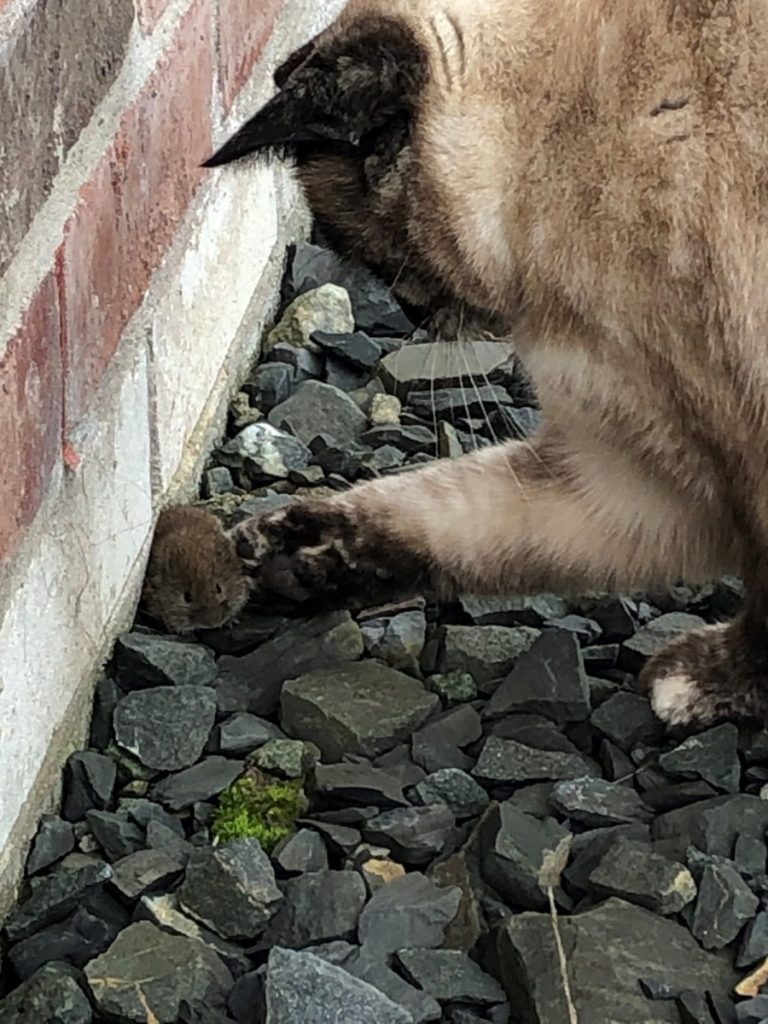
What to do when your cat brings home a bird or mouse?
The first thing is not to panic, scream or act horrified at the sight of seeing a dead mouse or rat in your home! Remain calm and composed. If your cat is willing to drop the prey and is happy for you to dispose of the gift, then do so. The best place to dispose of it will be in an outside, secure bin / trash can. If your cat has bought the prey to the house and won’t let you near it, then try to encourage your cat to take it outside. Many cats though will bring the gift to the doorstep rather than indoors.
Distracting your cat with a toy or with some food may work for some cats, giving you enough time to dispose of the prey. However, this isn’t always that easy. Our cat will bring prey to the doorstep, and then play with it for as long as a couple of hours! She will be completely focused on the catch and is very protective of it. Cats don’t do this to be cruel, they do this to confuse the prey and tire it out. This makes sure that they can kill it without getting injured themselves.
Why do cats hunt?
Hunting is simply a natural instinct in all cats. Before cats were domesticated about 10,000 years ago, hunting was a means of survival. Being carnivores, hunting meat for food was critical to their existence. To the domesticated cats of today it isn’t about hunting for food in order to survive as they know that they will return home to a hearty meal. It’s about satisfying the urge to hunt – locating their prey, chasing it and playing and toying with their prey.
Mother cats would also bring their prey home for their young. This would allow her to teach her young how to hunt, kill and eat the captured meal.
Why do cats bring their prey home?
A cat’s instinct is to bring her prey back to where she feels it is safest, which will be her home. As we’ve seen above, mother cats will also have the instinct to bring the prey home to teach her young. Even if she has no young of her own, this natural role may still be played out. Your cat will still be taking on the role of mother and brining the gifts back to you, her family.
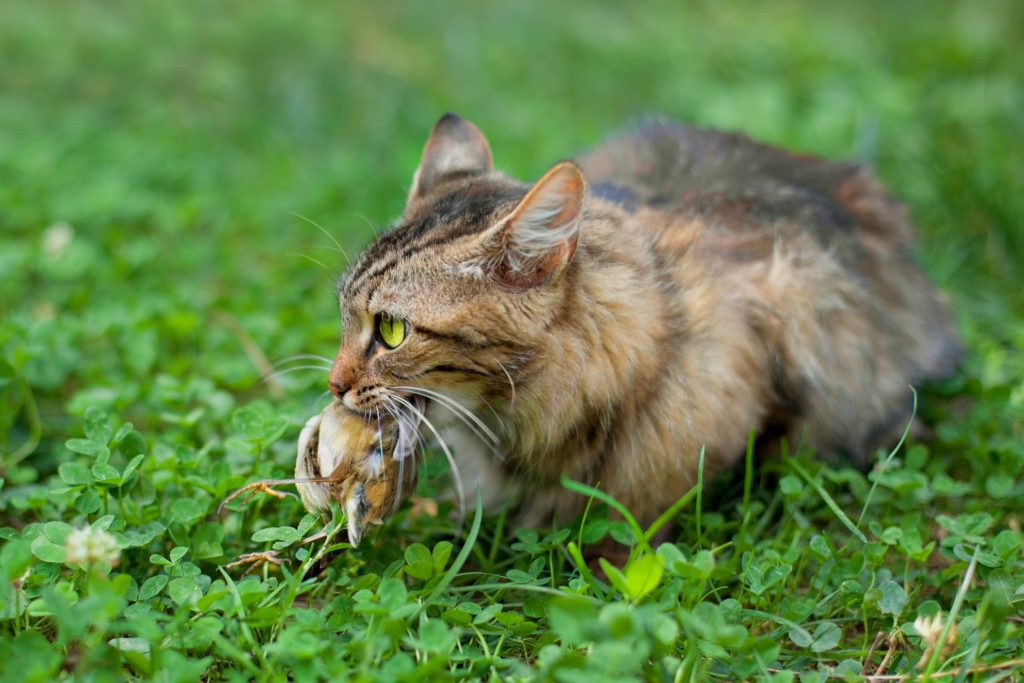
Do cats eat their prey?
Many domesticated cats will not eat their prey. The behavior of feral cats may well be different. But certainly, for household tame cats, it’s about the thrill of the chase. Once the hunt has finished, most cats are more than happy to return to their bowl for their next tasty meal. Although it is unlikely that your cat will eat the prey, it is best to dispose of it before she gets the opportunity. There is the possibility that eating prey could make your cat sick. Eating a mouse, for example, could cause your cat to be infected by one of these diseases:
Toxoplasma – symptoms can include diarrhoea, pneumonia, liver disease, or diseases of the nervous system. Also worryingly is that this disease can also spread from your cat to you.
Hantavirus – another unpleasant disease that can lead to respiratory distress and pulmonary edema. This also can be spread to humans.
Roundworms – these are a parasite that can live in your cat’s intestines and compete for nutrients they would normally ingest.
Rickettsialpox – this can cause ulcers and a rash over the body and limbs.
Another concern is that a mouse or rat may have ingested poison. Eating this rodent can make your cat ill and could even prove fatal. If your cat does eat a rat, mouse, a bird or even anything caught on her hunt then it is best to monitor for any changes in health or behavior. If you have any concerns, please contact your veterinary for advice. It is always better to be safe than sorry.
Ways to stop your cat from hunting
With hunting being such a strong ancestral urge in our cats, are there ways that we can stop them?
Keep your cat indoors
The debate regarding indoor / outdoor cat is one which constantly divides cat owners. We have explored these issues and arguments in our article ‘Should I let my cat outside at night? Indoor or outdoor cat?’. Keeping your cat indoors will prevent your cat from hunting. This is much easier to implement from kitten stage compared to keeping a cat who is used to outside access, indoors. If this is the case then it is essential that their hunting instinct is satisfied with plenty of play time, access to climbing areas and a stimulating environment.
Get your cat a collar with a bell
A cat’s stealth hunting technique is key to a successful catch. Putting a collar with a bell on your cat will give warning to they prey and time for them to move to safety. With cats climbing trees, writhing under fences, going through thick bushes and so forth, it is critical to get a quick release collar. If your cat gets stuck, then the collar will release, and your cat can return to safety. An example of such a collar is this one, BINGPET Safety Nylon Reflective Cat Collar available on Amazon:
Plenty of playtime with your cat
Quality playtime with your cat is just as important as feeding and keeping them safe and warm. Playtime relieves stress, anxiety and behavioural problems. Adult cat play time is based on their natural instinct to hunt and catch prey. Try to mimic this in play by making the toys move in a way that mimics a mouse or a bird. Just having a toy mouse available for your cat to play just won’t stimulate your cat, it needs to move. When the toy starts moving her hunting instincts will kick in. Allow your cat to be successful in catching her toy prey, this will build her confidence, avoid frustration and build on trust. The choice of toys available to satisfy the hunting instinct is vast. Here are just a couple of our favourites:
Check out our article ’18 games to play with your cat’ for more play inspiration along with tips on safety and getting the most out of a play session for your cat.
Activity feeders
Spreading your cat’s daily food allowance into smaller, more spread out portions, and using activity feeders for a proportion of this may keep your cat’s instinct to hunt for food stimulated. It is easy to make your own activity feeders, here’s an easy one we made using cardboard tubes:

Or there is a huge choice available to buy. We liked this one we found on Amazon, Trixie 5 in 1 activity feeder. In fact it’s one of the gifts we recommend if you are looking for a gift for your cat! (Best gifts for Cats).
Do not give too much attention or fuss to the gift
Some believe that giving your cat praise and attention after bringing prey home will associate hunting with reward. From personal experience, we find that despite ‘ignoring’ Misty’s hunting conquests she still hunts.
Other articles you may of interest:
Do cats keep rats away? Do cats hunt rats?
Can cats get fleas from mice? Homeopathic & natural remedies for cat fleas
